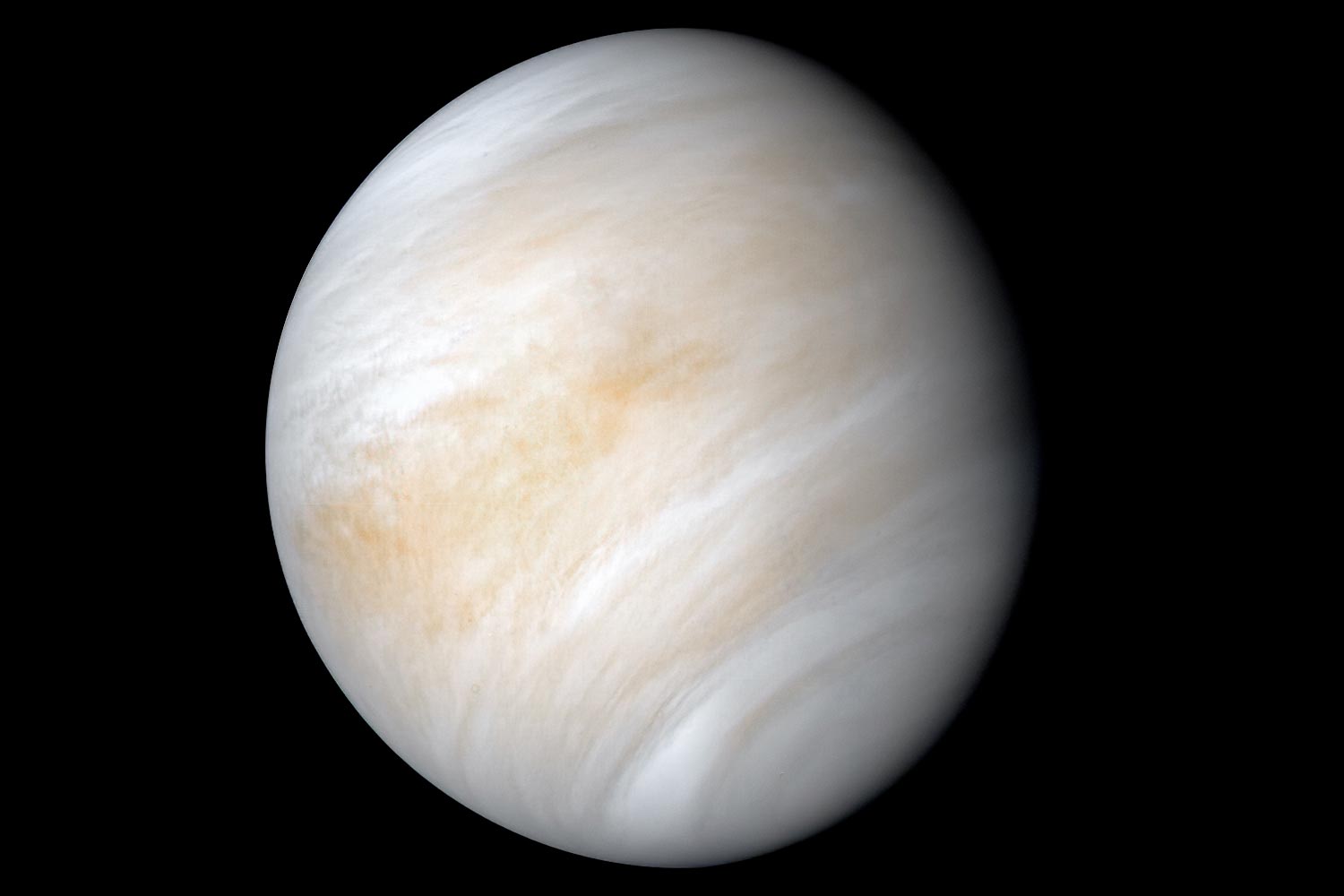Last week astronomers announced the surprising discovery of the chemical phosphine in the toxic atmosphere of Venus, with its presence defying conventional expectations from geological or atmospheric sources. Anerobic bacteria on Earth produce phosphine, so the finding suggests the possibility that the same thing could be happening over the harsh, rocky terrain of Venus.
Why does this matter? University of Virginia astronomer Ilse Cleeves, who uses radio telescopes to detect chemical signatures in space, explains.
Q. Why would phosphine be an indicator of life?
A: Ideally, we’d like to see tiny little bacteria waving back at us from space, but sadly our telescopes on Earth are not that capable. Instead, we look for the signatures of gasses that living organisms on Earth produce.
Gasses that could signify the presence of life are sometimes referred to as biomarkers. Unfortunately, many promising biomarkers can also be produced through processes completely unrelated to life, like geological activity. For example, did your favorite exoplanet’s methane come from a herd of space cows? Probably not.

Ilse Cleeves is an assistant professor of astronomy who uses radio telescopes to detect chemical signatures in space. (Contributed photo)
In astronomy, we hope to find special molecules that only come from biological sources and can’t be confused with geological or chemical ones. That’s where phosphine comes in.
Here on Earth, phosphine is largely a product of life (thanks, microbes!). In the new study, the researchers explore all the known ways to produce their measured quantity of phosphine in non-life related ways and fail, which – for scientists – is the exciting part.
Q. Is it surprising that this chemical would be found in the Venus atmosphere?
A: Phosphine has been seen in other planets in our solar system, but mainly gas giants like Jupiter and Saturn, with hydrogen-rich atmospheres. It is not expected to survive very long in an atmosphere like Venus’s or Earth’s. The authors of the original study said it shouldn’t live much longer than 1,000 years under the Venusian atmospheric conditions (that’s how the Venus folk refer to themselves). This timescale is like the blink of an eye on astronomical time scales.
Where is it coming from, then? It needs a constant production source. While life is an exciting possibility, it’s more likely we simply still have a lot to learn about the non-life related atmospheric chemistry of Venus.
Q. How exciting is this discovery?
A: My research group at UVA can probably attest to how excited I was [by] the news last week when I saw the initial results. I always enjoy an unexplainable puzzle because it means that we have something new to learn, whether or not it is related to life.

For the data-heads out there, I will say that I think that this detection is worth following up. The data analysis the authors undertook was incredibly challenging. However, one of the key telescopes involved in Chile, the Atacama Large Millimeter/submillimeter Array, is also not immune to the impact of the current pandemic, and while it is currently offline, I look forward to it reopening so that more measurements can be taken to get a really rock-steady detection and maybe learn more about this puzzling little molecule.
Q. Should we begin exploring Venus more closely?
A: Even before phosphine I have felt that Venus has been relatively under-explored. The environment is very inhospitable to everything – spacecraft included. Some ideas that have been “floated” in the past include sending balloons that can sample the atmosphere without having to be built to withstand the enormous pressures at the surface of Venus, almost 100 times greater than those at sea level on Earth. Since some of the leading theories of possible Venusian life could be cloud-based, it seems like this might be a pretty promising approach.
Q. Do you think life exists, or has existed, on other planets, including within our solar system?
A: It is harder for me to believe that life hasn’t existed on other planets, given there are hundreds of billions of them just in our galaxy. That’s a lot of chances. Odds are in life’s favor.
And we also know that life is incredibly creative. Remember “Jurassic Park”? “Life finds a way …” It fills every niche on Earth we have ever explored.
Whether life has existed elsewhere in our solar system is less certain to me. Our solar system has looked very different over the last 4.5 billion years – Mars once had flowing water. We still have a lot to learn about our own galactic “backyard.”
Q. Why is it important that we investigate other planets in our solar system and beyond?
A: Are we alone in the universe? What can other planets teach us about our own, and whether our Solar System’s ‘outcome’ is typical or if we are somehow special?
To answer that, we need to understand planets of all ages, shapes and sizes.
Media Contact
Article Information
September 18, 2020
/content/could-nearby-venus-harbor-life-astronomer-helps-unfold-mystery

